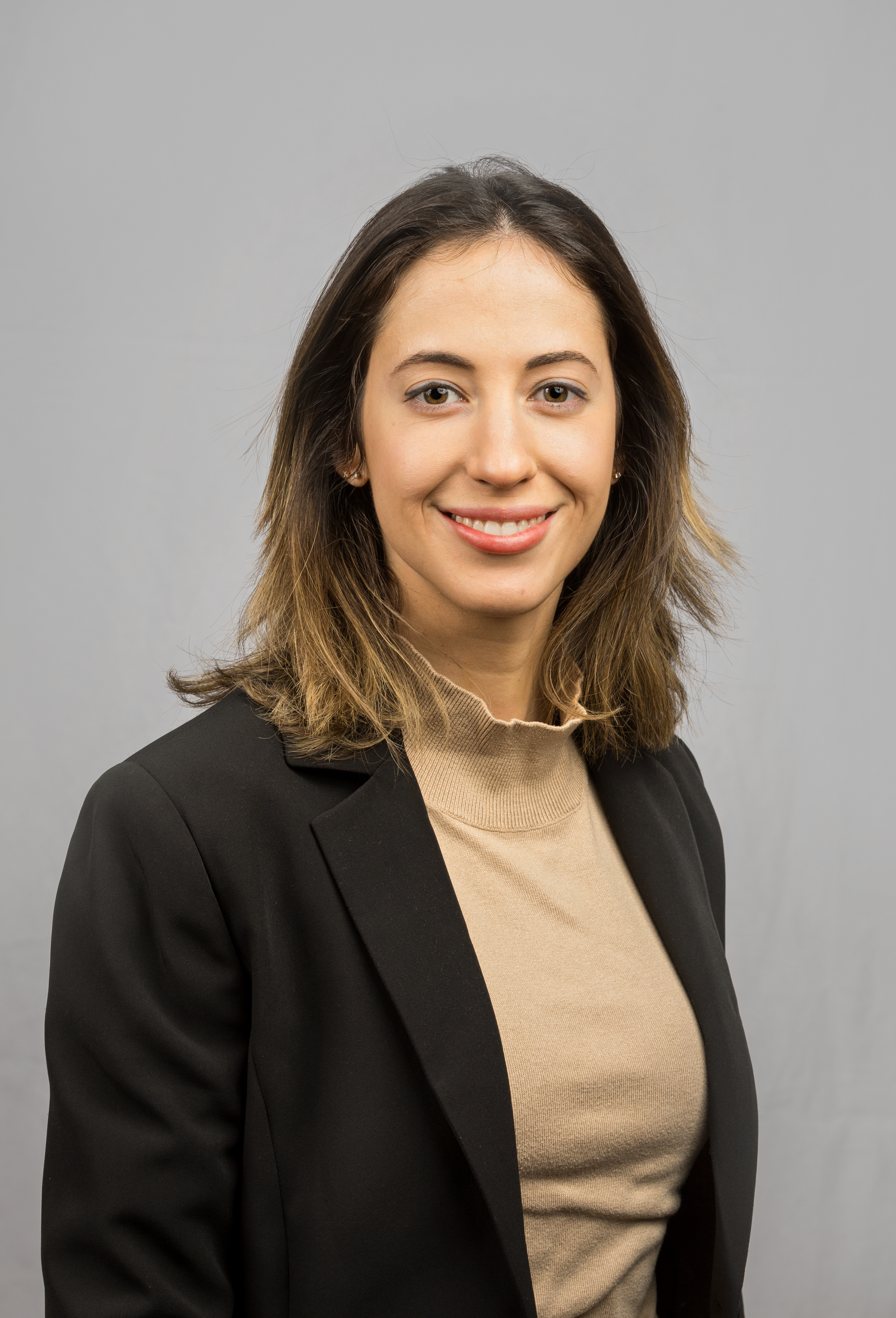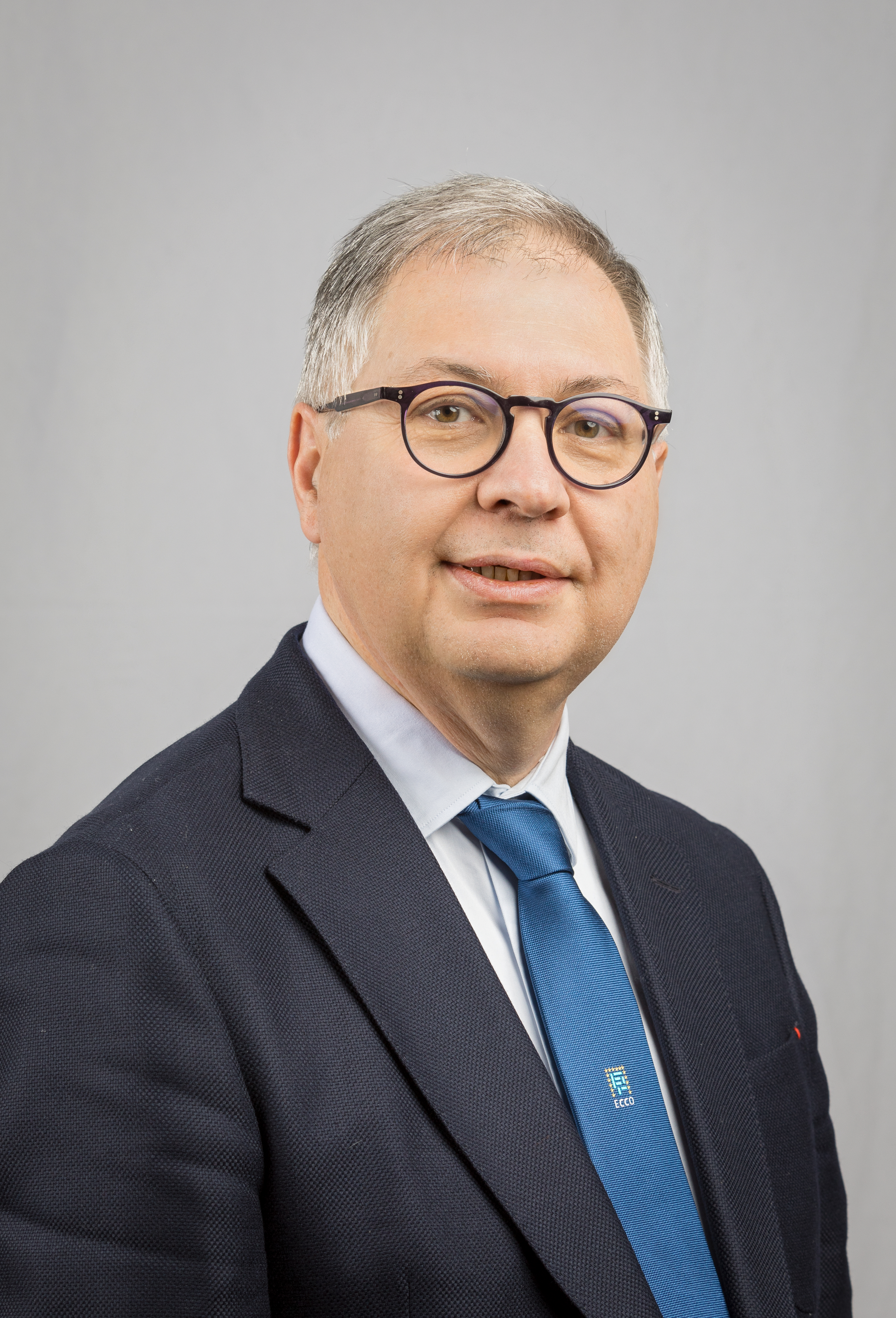Y-ECCO Interview Corner: Fernando Magro
Maria Manuela Estevinho, Y-ECCO Committee Member
 Maria Manuela Estevinho Maria Manuela Estevinho© ECCO |
This issue's Interview Corner is dedicated to Fernando Magro, the current President-Elect of ECCO. Fernando Magro is a gastroenterologist and head of the Clinical Pharmacology Department at University Hospital São João in Porto, Portugal, where he also serves as a Professor of Pharmacology and Therapeutics. He is a founding member of the Portuguese Inflammatory Bowel Disease Group and an active researcher focusing on the management, treatment and prognosis of IBD. His dedication to ECCO is nothing new, as you'll read below. I took this opportunity to learn more about the academic and clinical journey of the person I'm glad to call my mentor.
How did your relationship with medicine start? Had it always been something you'd dreamed of?
As a kid, I wanted to be a scientist, specifically a chemist. Working in a lab, creating knowledge and discovering things before the rest of the world fascinated me. Later, the idea of being able to apply that knowledge to serve and help others grew stronger, which made me believe I wanted to be a medical doctor. As time passed, I realised that most medical practice is not done at the bedside, and it became clearer to me what I wanted – to be a researcher and a clinician, applying the knowledge, skills and questions I have as a physician to find answers in translational research.
|
|
So, how did you end up in gastroenterology?
In my early years in medical school, my favourite subjects were immunology and pharmacology. Later, I became fascinated by digestive diseases. Gastroenterology was the perfect combination. Moreover, endoscopy brought objectivity to diagnosing and monitoring diseases, which was even more significant at the beginning of my career, when biomarkers were scarce and imaging techniques weren't as advanced as they are today. I never regretted that choice.
Was your affinity for Inflammatory Bowel Disease love at first sight?
Working with IBD eventually made perfect sense because it combined the best of three worlds: immunology, gastroenterology and the critical need to develop the pharmacological component. When I started working with IBD in 1994, we only had corticosteroids and azathioprine. Patients suffered greatly, and these diseases had a significant impact on their quality of life. I felt that there was a significant knowledge gap and that conducting research in this field would have a major impact on patients' lives. So, besides trying to see as many IBD patients as I could, I dedicated myself to understanding the mechanisms associated with the disease and how they could be modulated. Of course, with the drugs available at that time, it was almost impossible to control the disease and restore quality of life. Things became simpler with the advent of anti-TNF drugs, which, you could say, reshaped my life as a gastroenterologist and as a doctor. For the first time, we could truly alter the natural course of the disease, allowing patients to be productive, to maintain mental and sexual health and to experience personal satisfaction almost on a par with the general population. This transformation was further revolutionised by the development of an increasing number of advanced therapy drugs. So, I can say that I followed the IBD revolution from the perspectives of a gastroenterologist, a pharmacologist and a clinical researcher.
Regarding the last role you mentioned, I checked your early publications and found quite a catastrophic case report, “Adenocarcinoma of the Cecum as the First Manifestation of Ulcerative Colitis Complicated by Primary Sclerosing Cholangitis and Endomyocardial Fibrosis”, in a 47-year-old patient. These days, it's quite rare to find such advanced cases…
I believe my first publication was the description of the extraintestinal manifestations (EIMs) in my centre's cohort, a topic that remains significant more than 20 years later. Regarding that extremely challenging case, it was an extreme demonstration of the impact that under-recognising EIMs, particularly when they precede an IBD diagnosis, can have. At the time, the cardiovascular manifestations of IBD were largely unknown. Now we are able to diagnose patients earlier; however, there is still much work to be done in this regard.
And, of all the publications you've been involved in, which one comes to mind first?
Guidelines are, of course, relevant because of the impact they have on education and standardising practices across different countries. As for specific papers, I'd highlight the first randomised trial using infliximab that had histological remission as the primary endpoint, published in the Journal of Crohn's and Colitis, as well as the analysis of the correlation between faecal calprotectin and histological indexes, published in Gut.
Was founding the Portuguese Inflammatory Bowel Disease Group (GEDII) one of your key achievements?
Yes, absolutely! I was the first coordinator of the group, which was formally established in 2005, and since then I have always been actively involved in its various initiatives and projects. From my perspective, this group, which consists of several physicians dedicated to IBD across the country, has contributed significantly to the education of young colleagues and the development of IBD research. This is particularly relevant in our country, given that the support we receive from stakeholders to combine clinical work with research is almost non-existent. Since its inception, more than 40 prospective studies have been conducted by this IBD consortium, including the first Portuguese investigator-initiated randomised trial in the field of gastroenterology. Currently, around 90% of the studies on IBD carried out in Portugal have, in some way, the involvement of GEDII members, which is undoubtedly something to be proud of. The growth of GEDII put Portugal on the European IBD map, and I am honoured to have been part of that journey.
And when did ECCO become a part of your life?
I was the first Portuguese representative at ECCO, a position I held for several years, which introduced me to the organisation's dynamics. Later, in 2009, I joined EduCom; at that time, we realised that ECCO's guidelines had a lot of visibility and impact on clinical practice. Together with Axel Dignass, Rami Eliakim, and Vito Annese, I was part of GuiCom from its beginning. This was, perhaps, the committee I'm most proud to have been a part of because I followed the project from its inception and saw its growth over the years. After that, I joined ClinCom and later worked as Educational Officer, which was also an amazing experience. Of course, my current role makes me very happy, but it's the journey I took with ECCO that really makes me proud. ECCO is like a family to me, with highly committed people dedicated to doing more and doing better.
We started this conversation by talking about how much the management of IBD has evolved over time. How do you think it will look in 20 years? Do you think we'll still be using azathioprine? And corticosteroids?
Azathioprine's days are numbered in the short term, that's my belief. We will continue using corticosteroids occasionally, but there will be an increasingly early introduction of advanced therapies, especially as prices decrease and as we understand that, as demonstrated in the PROFILE study, intensive treatment at an early stage can significantly alter the course of the disease. I think, in the short-term future, we are likely to use combination advanced therapy for induction; however, there's still much to discover in this area. Above all, a holistic view of the patient, multidisciplinary assessment and the combination of biomarkers will prevail. I think we will also move toward more stringent therapeutic targets, such as transmural remission in Crohn's Disease, and ideally even molecular remission in Ulcerative Colitis.
How do you manage to handle all these tasks at both national and international levels? What motivates you?
What drives me is mainly the motivation to do what I enjoy and to constantly improve at it. And of course, I don't have time-demanding hobbies. I dedicate my time to my family, enjoy listening to classical music, reading poetry and painting, especially impressionist works.
Thank you, Professor, for your time and for giving us a glimpse into your journey.
 Fernando Magro
Fernando Magro